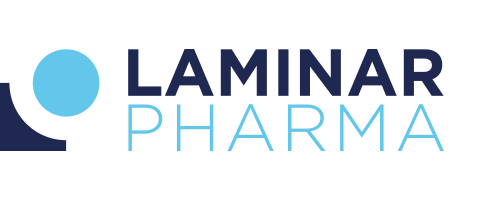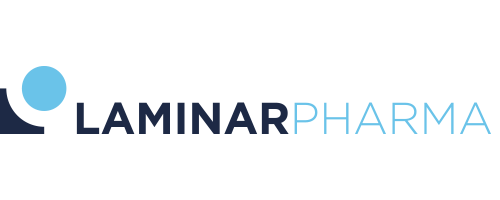12 Feb Laminar Pharma will host a postdoctoral project to isolate protumoral proteins thanks to funding from the Government of the Balearic Islands
Palma de Mallorca, February 12, 2020. On January 2021, the researchers whose projects have received funding from the CAIB 2020 call of the Balearic Government for the promotion of hiring of research staff were announced. In the area of industrial biomedical research (Felip Bauçà Program), the researcher Ramón Román Roldán has been selected, and he will join the Research Unit of Laminar Pharma, a biopharmaceutical company located in the Balearic Islands, specifically in the Parc Bit of Palma de Mallorca. Laminar has been part of the science and technology system of the Balearic Islands for fifteen years.
The postdoctoral research project presented by R. Román will last 24 months and will be supervised by Professor Pablo Escribá — Professor at the UIB and Founder of Laminar — as Principal Investigator, to carry out the overexpression and purification of the glucosylceramide synthase enzyme (GCS) in order to develop inhibitors of this enzyme with antitumoral potential. The researcher has a long research career and has carried out the production and purification of many different proteins.
The addition of researcher Ramón Román to Laminar will promote the creation of a department for the production and purification of proteins.
Imbalances in lipid composition caused by cancer are well-documented. The GCS enzyme is a protein that is lodged in the lipid membrane of cells, and its overexpression is associated with a reduction in the survival of patients with glioma. For this reason, GCS, also called UDP-glucose ceramide glucosyltransferase (UGCG), has become a potential therapeutic target in Laminar’s clinical development plans, and the goal of the project will be to design enzyme inhibitors based on the structure of its active site.
To date, there are no molecules under development for the treatment of cancer based on this potential therapeutic target. Therefore, in addition to GCS, this project proposes to overexpress and purify other proteins related to key processes in pathologies that Laminar is already studying for its oncology clinical trials, carried out in the field of Membrane Lipid Therapy (MLT, also called melitherapy).
The company uses melitherapy as a pioneering and highly innovative therapeutic platform to study its molecules for various applications in Oncology. This method uses bioactive lipids as a therapeutic strategy based on the regulation of the structure and / or organization of the lipid domains of the cell membrane. Such changes to the membrane lipids provoke a modification of the interaction between membrane proteins and signal transduction pathways that regulate tumour growth.
About Laminar Pharma
Laminar was founded in 2006 as a spin-off of the UIB (University of the Balearic Islands). It was the first Spanish company to start clinical trials with a molecule from a Spanish research center. The biopharmaceutical company researches and develops drugs designed using molecular and cellular biology.
Laminar will create a stable department of protein synthesis in the field of Drug Discovery. This department is expected to be decisive in the process of rational design of medicines based on melitherapy (MLT). To do this, it has an extensive network of collaborators who are international researchers, among others: Juanita Lopez, from the Royal Marsden Hospital in London, United Kingdom; Dr Ruth Plummer, from Newcastle in the UK; Dr. Roger Stupp, University Hospital of Lausanne, Switzerland, Dr. Stefano Piotto, Salerno, Italy; Prof. Laszlo Vigh, Szeged, Hungary, Dr. Lagane from INSERM and Dr. Dumas from CNRS (France).
About molecule LAM561 (2OHOA)
An example of the relevance of sphingolipids in the development of cancer is the deficiency of sphingomyelin (SM) and excess phosphatidylethanolamine (PE) in the membrane of tumor cells, including those of glioma and other tumors of the Central Nervous System, in comparison with normal cells. This imbalance can be corrected with treatment using the compound LAM561 (2-hydroxy-docosahexaenoic acid), an activator of sphingomyelin synthase 1 that has been developed and is an intellectual property of Laminar Pharmaceuticals.
45% of patients with different types of solid tumors treated with 2OHOA for more than 6 weeks showed a positive response to treatment (stabilization or objective reduction of the tumor according to RANO criteria) in a multi-institution study carried out in 5 European hospitals. Currently, the median survival of patients with glioblastoma is approximately one year. Laminar’s goal is to at least a double the median survival rate and to increase 5-year survival rate from 16% to 50%. Currently, LAM561 is being investigated in a phase 2b/3 clinical study (Study number in the ClinicalTrials.gov database # NCT04250922) after the successful completion of a first-in-humans trial (phase 1/2a; Study number in Database ClinicalTrials.gov NCT01792310), and a secondary safety trial (phase 2a; NCT03867123) specific in glioblastoma patients in which LAM561 showed no serious or limiting adverse reactions in combination with the current standard of care for these patients (Chemoradiotherapy).

